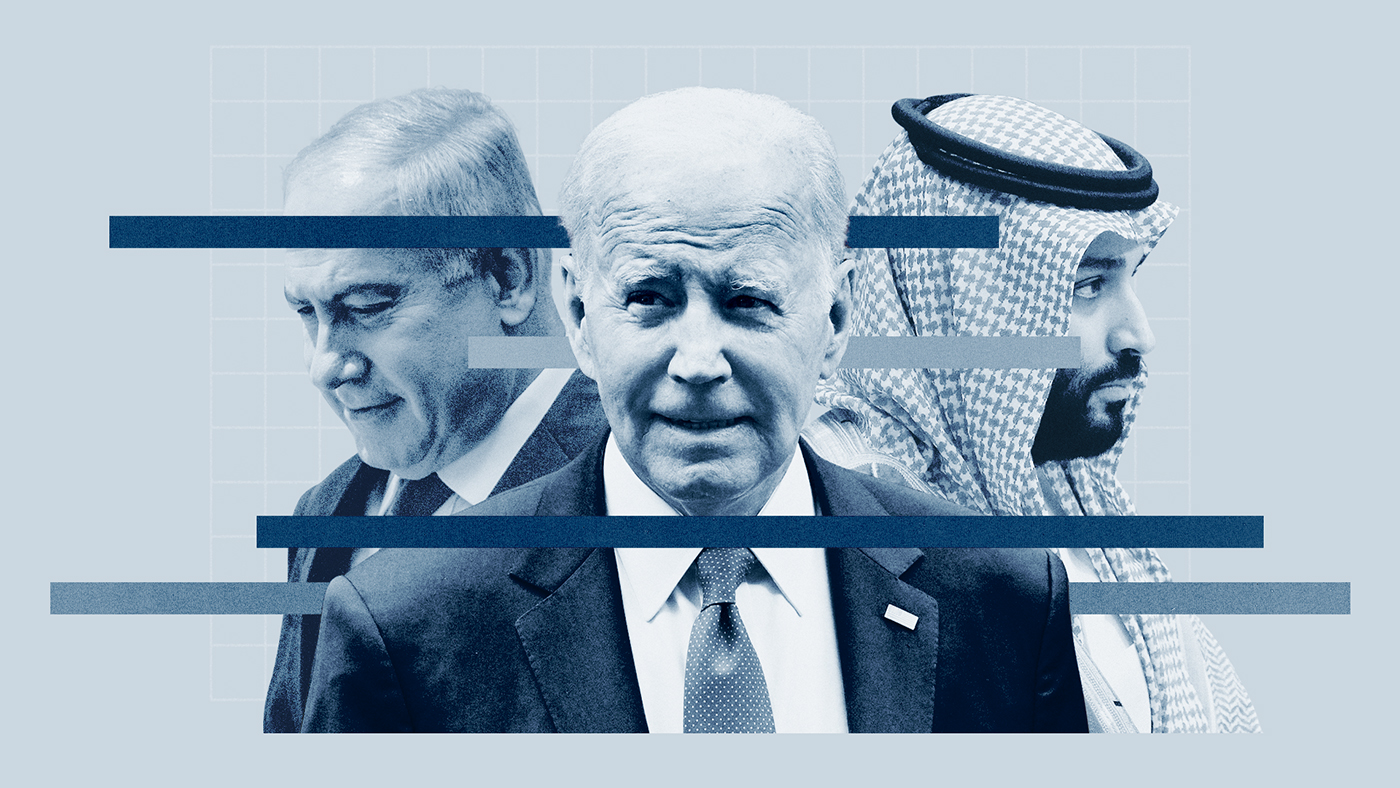What price should the US pay for an Israel-Saudi Arabia peace pact?
Both countries seek security guarantees from the Biden administration


A free daily email with the biggest news stories of the day – and the best features from TheWeek.com
You are now subscribed
Your newsletter sign-up was successful
Peace of a sort may be at hand between Israel and Saudi Arabia. The Wall Street Journal reported the two longtime antagonists are preparing to normalize relations, with Saudi Arabia finally giving formal recognition to Israel in return for "concessions to the Palestinians, U.S. security guarantees and civilian nuclear help." There are still "long odds," but the potential agreement "would be the most momentous Middle East peace deal in a generation."
Any deal will probably require a big U.S. investment. Axios reported that Israeli prime minister Benjamin Netanyahu wants security commitments from America focused "around a possible military nuclear threat from Iran." And the New York Times' Thomas Friedman reported that President Biden is "wrestling with whether to pursue the possibility of a U.S.-Saudi mutual security pact" to guarantee the agreement.
There are critics, though, who say the U.S. should avoid such entanglements. Israel, after all, is caught up in protests over Netanyahu's proposal to reshape that country's Supreme Court. And Saudi Arabia's government still has blood on its hands from the murder of journalist Jamal Khashoggi. The U.S. "shouldn't want to keep Saudi Arabia as a client, and it certainly shouldn't want to upgrade that relationship to a formal alliance," Daniel Larison wrote at Substack. What price, if any, should the U.S. pay for a Middle East pact?
The Week
Escape your echo chamber. Get the facts behind the news, plus analysis from multiple perspectives.

Sign up for The Week's Free Newsletters
From our morning news briefing to a weekly Good News Newsletter, get the best of The Week delivered directly to your inbox.
From our morning news briefing to a weekly Good News Newsletter, get the best of The Week delivered directly to your inbox.
What are the commentators saying?
Brokering a Saudi-Israeli agreement "means giving huge political gifts to two leaders that the Biden administration has rightly been trying to treat as something like pariahs," Peter Beinart wrote at Substack. Netanyahu has created chaos in his country with the Supreme Court reform efforts, while Biden won't even offer a proper handshake to Saudi Arabia's Mohammed bin Salman. Getting further entangled with those two leaders would "violate America's values, and even indeed America's interests."
"Pushing Saudi Arabia and Israel to normalize relations seems like a no-brainer," Stephen M. Walt wrote at Foreign Policy. But there are two reasons to be skeptical. First, the danger of a new Israel-Arab war is "vanishingly small." Second, getting an agreement would require bestowing Biden's "political capital on two of the least grateful clients in America's portfolio." Netanyahu and bin Salman have both treated the U.S. with "contempt." The U.S. shouldn't object to the two countries normalizing their relations. "But why should it expend any effort at all trying to persuade them?"
For the Biden administration, the deal may be less about peace between Israel and Saudi Arabia and more about geopolitical positioning, Ryan Bohl wrote at Time. The White House is aiming for "something like a Middle Eastern NATO," an alliance of countries that will keep "America in, Russia and China out, and Iran down." It's not clear, though, that an Israeli-Saudi pact will achieve those goals: The kingdom coordinates energy policy with Russia and takes investment from Beijing. "Saudi Arabia has shown multiple times that even with U.S. support it won't necessarily align with Washington's worldview."
What's next?
The deal is "no sure thing," David Rothkopf wrote in the Daily Beast. The path to an agreement is "highly complex" — involving calculations about Israel's treatment of Palestinians and Saudi Arabia's relationship with China — and "fraught political environments" in Israel and the United States may further complicate those efforts. Seeking to "reverse lifetimes of enmity" is a good thing, "but yellow caution lights are flashing in this case."
A free daily email with the biggest news stories of the day – and the best features from TheWeek.com
One of the potential stumbling blocks: U.S. officials may not sign off on American security guarantees unless Palestinians receive a clear benefit from the arrangement, Haaretz reported. "Many of us believe that the long-term sustainable peace can only be secured by addressing the critical Palestinian questions," said Sen. Chris Van Hollen (D-Md.).
There is still a lot of work to be done before an agreement comes to fruition. The White House says Israel and Saudi Arabia "have not agreed on a shared framework for negotiations," Al Jazeera reported. "We've made progress on a number of issues," said a State Department spokesman. "I'm not going to get into what the progress is, but it is still a long road to go, with an uncertain future."
Joel Mathis is a writer with 30 years of newspaper and online journalism experience. His work also regularly appears in National Geographic and The Kansas City Star. His awards include best online commentary at the Online News Association and (twice) at the City and Regional Magazine Association.
